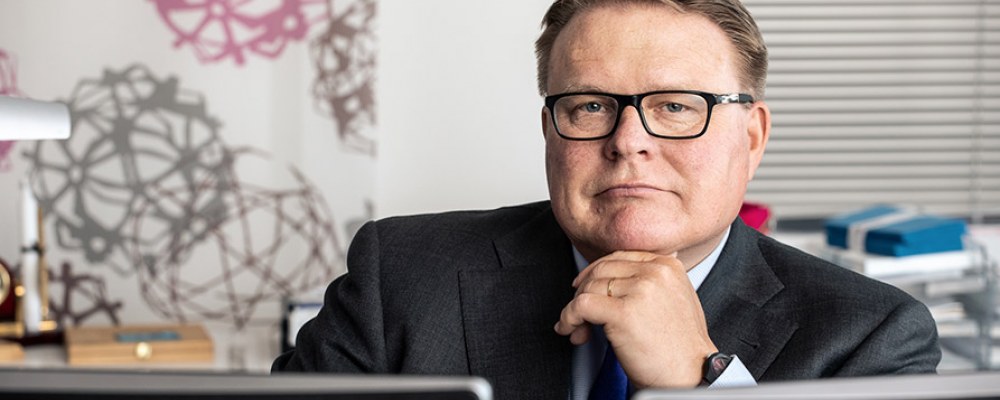
A disabled employee is a professional like everyone else
Petri Pohjonen reminds us that when it comes to work, it is expertise that matters, not individual characteristics.
– You hear a lot of talk about how disabled people are partially able to work, or that they are people who can only do certain things. If somebody uses a wheelchair or some kind of assistive equipment, it does not mean that they are unable to work, says Petri Pohjonen, a former Director General of the Finnish Association of People with Physical Disabilities.
A spinal cord injury sustained when he was thirty did not slow down the career of academic engineer Pohjonen. Pohjonen had just begun at his new job as the Executive Manager of the Federation of Course Centres (now the Federation of Vocational Adult Education Centres) when the injury occurred.
– Doctors readily offer retirement to disabled persons. It was offered to me as well, and the insinuation was that I was not fit to work. However, I was a stubborn young individual who wanted to work, and my employer welcomed me despite the wheelchair. Indeed, I have forged a terrific career handling essential work tasks in several workplaces.
Pohjonen considers himself lucky because he did not have to send open job applications after he became disabled in the late 1980s.
– I had already been on a career path and people at workplaces knew me. If I had applied to open positions and told them about my disability, I probably would not have received any replies. If I had chosen to not mention the disability, I would have had to ask whether the building is accessible when going in for the job interview and they would have found out that way.
Disabled people still face prejudices
Pohjonen considers it positive development that many companies have awakened to social responsibility and diversity in recent years. However, disabled people still face prejudicial attitudes from employers. Especially those who have been disabled from birth often have a more challenging time of it than people who become disabled as adults, as the former have to fight for their existence.
Pohjonen emphasises that disabled job seekers must trust their expertise, and employers must be open to hiring different kinds of people. When it comes to work, expertise is what matters, not individual characteristics such as disability.
Different people have many kinds of enriching impacts on the work community, and they bring fresh perspectives to the team.
As an example Pohjonen presents the Suitable Work for Everyone campaign of the Association of People with Physical Disabilities where the idea was to find suitable work for physically disabled professionals. The campaign consisted of six regional events that were open to everyone. Over a thousand people participated in the events, including both disabled people and employers. The events involved hundreds of employers and recruitment companies that helped disabled job seekers and workplaces find each other.
– Different people have many kinds of enriching impacts on the work community, and they bring fresh perspectives to the team. Coffee table discussions might lead an employee to see that getting a cold cup of coffee might not be the worst thing in the world when compared to how a colleague in a wheelchair might not be able to get out of the house when it snows.
The government supports workplaces in becoming accessible
Pohjonen reminds us that disabled people are the best experts on accessibility. When a workplace hires a disabled employee, they can ask the employee directly what kind of help they need in order for the workplace to be accessible. Institutions such as the labour administration and the state offer support and information on various accessibility solutions for workplaces. Small companies are also eligible for monetary support to help them become accessible.
– Some employers think that hiring a non-disabled employee is easier because then the workplace does not need to adapt. However, the changes needed by a disabled employee are often very small. Besides, everyone benefits from accessibility. Even non-disabled people.
The era of remote work brought on by COVID-19 has also taught employers that work can be done anywhere. Many jobs in the tech industry, for example, rely heavily on computers and are not bound to a particular place.
Everyone benefits from accessibility. Even non-disabled people.
Pohjonen calls for more flexibility in the labour market.
– For instance, one should be able to put one’s disability pension on hold, which would allow one to seek employment and see more flexibly what their capacity for work is. I also encourage disabled persons to study. In recent years, universities have paid more attention to accessibility than before.
To conclude, Pohjonen reminds us that Finland is a nation that is retiring and growing old at top speed.
– All reserve labour should be utilised and utilised better.
Petri Pohjonen